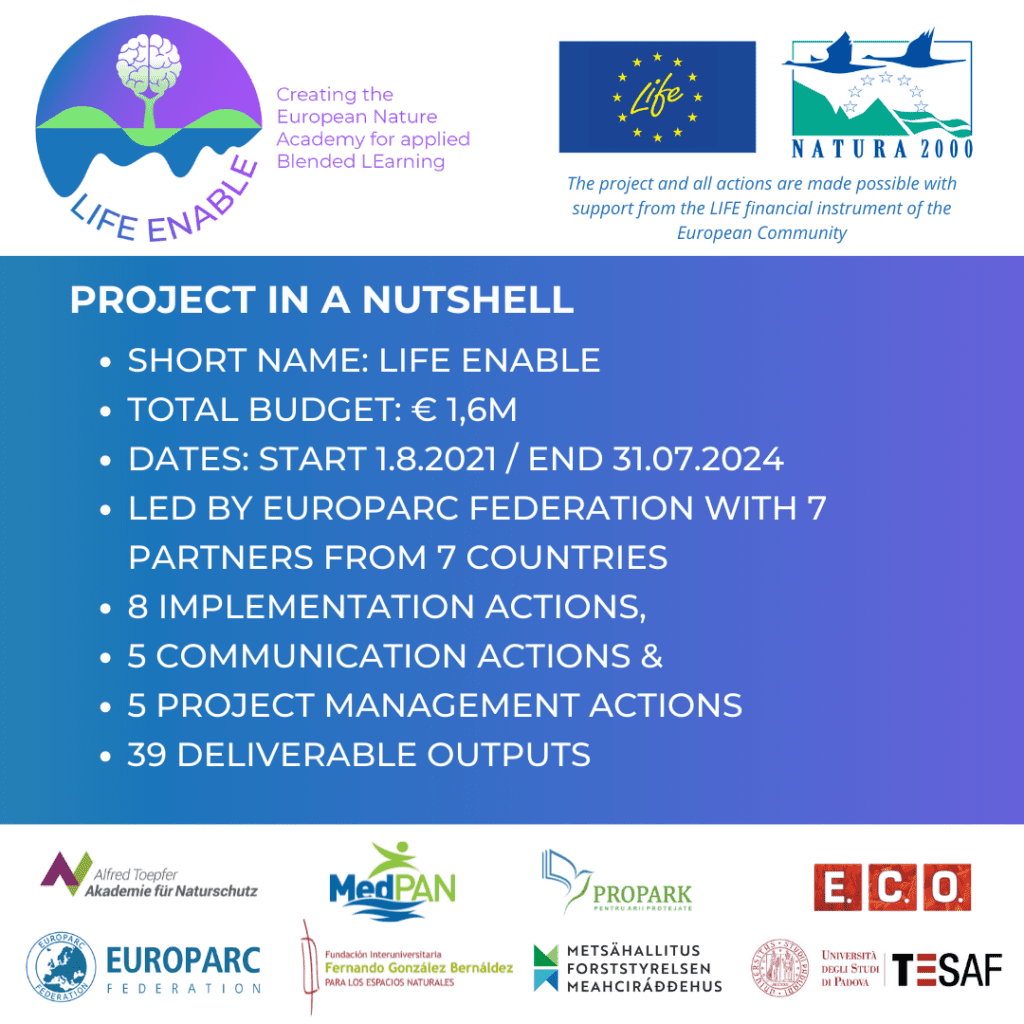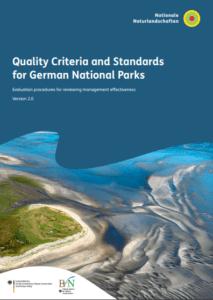“There is no [nature] conservation without people, without public support!”
Martina Hervat, a marine biologist from Brijuni National Park in Croatia, participated in one of the courses delivered by LIFEeNatura2000.edu project. In a short interview, she shared her experiences and the positive impacts this project has had on her career development.
Watch the full interview with Martina Hervat
Brijuni National Park
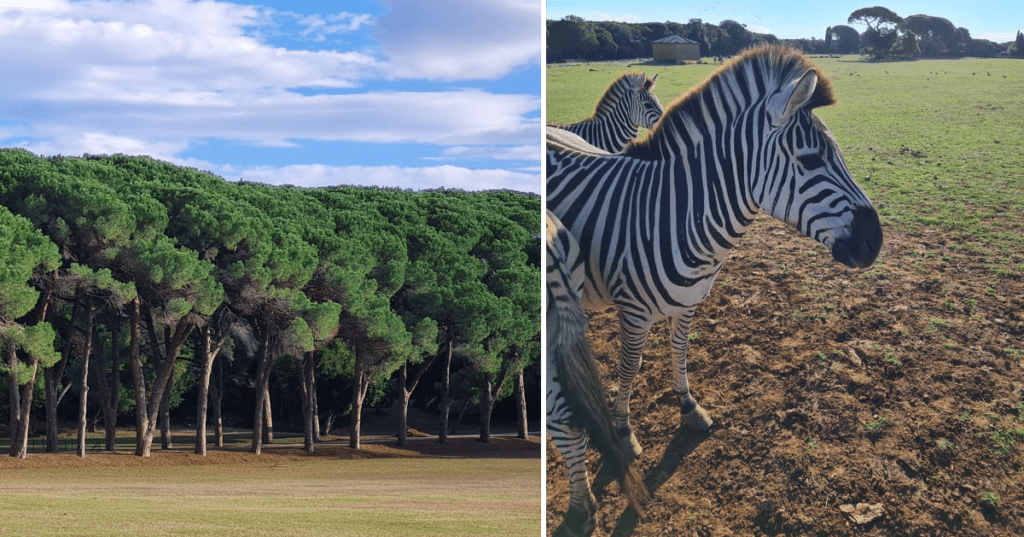
NP Brijuni, Photo: Tonko Bogovac
The Brijuni islands are one of the 8 national parks in the Republic of Croatia. The total surface area of the Park is around 3,395.00 ha almost 80% of which is the sea. In 2021, the Brijuni was awarded an international Blue Park award, from Marine Conservation Institute in Seattle, which recognises outstanding marine protected areas.
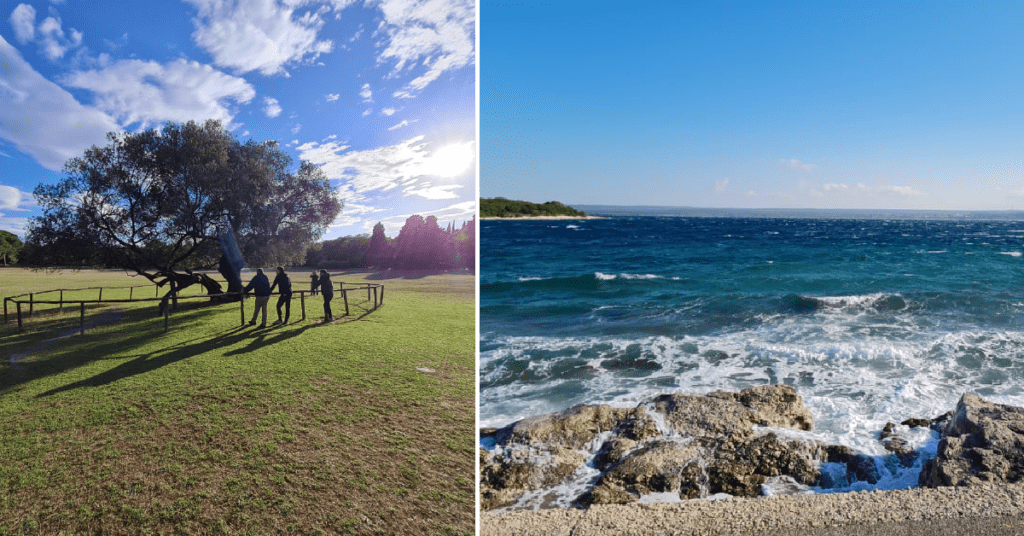
NP Brijuni, Photo: Tonko Bogovac
Joining LIFE.edu project
In 2020, LIFE.edu ran three courses:
- Applied conservation biology;
- Building alliances for Natura 2000 management and
- Competent Inclusive Communication.
They were created to develop the specific skills, knowledge, and attitudes required by Natura 2000 managers and Protected Area professionals and help them in their work. We wanted to hear why Martina decided to join the Communication course and how she heard about the project in the first place:
— Social media! I really like following the pages that are original and interesting, so I followed and saw the invitation to participate which was open to everyone. For me, it was interesting that the program was well-structured and that even before COVID-19, it was emphasised that it will be online.
Something that made this course particularly appealing for Martina was its interactive dimension:
— As emphasised in the invitation it was practical – not a passive webinar that we listened to, but they wanted to engage us, include us from the very beginning,
The course, as Martina states, exceeded her expectations because it helped her discover new job opportunities and make new friends:
— I met wonderful people during the project, and I am currently working with a colleague on the preparation of an international project… So the course truly opened the doors to new adventures.
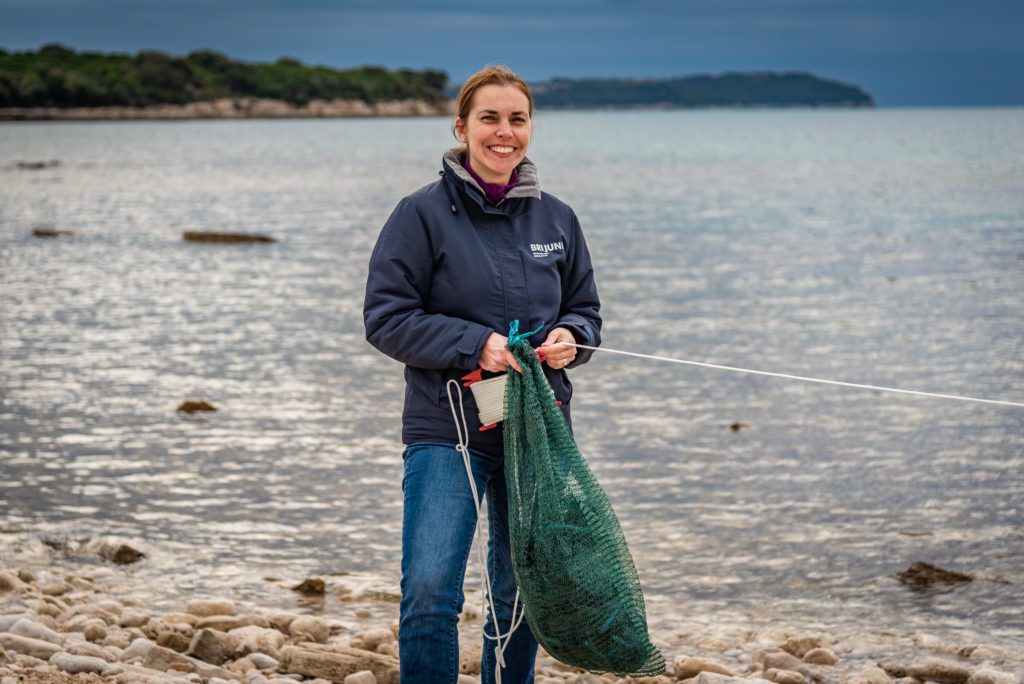
Martina Hervat, NP Brijuni Photo: Nataša Sundara
Martina’s project applying for the Interreg Central EUROPE funding programme focuses on the Management and Restoration of Tiny Areas of Conservation Importance. It gathers 9 institutions from Croatia, Slovenia, Austria, and Slovakia.
Many of the skills obtained during the LIFE.edu course, helped her during the project preparation, and she believes these types of courses are very useful for Nature Professionals:
Whatever we do, we need communication skills, advocacy, conflict resolution, better explanations. We can be experts in our fields like biology, economics… but what our education does not prepare us for is communicating.
— Somehow I thought that my job would be diving, recording, working on conservation, but there is no [nature] conservation without people, without public support—because of the funds but also because of the implementation, and that is not our strong suit. Sometimes we do not know what to do.
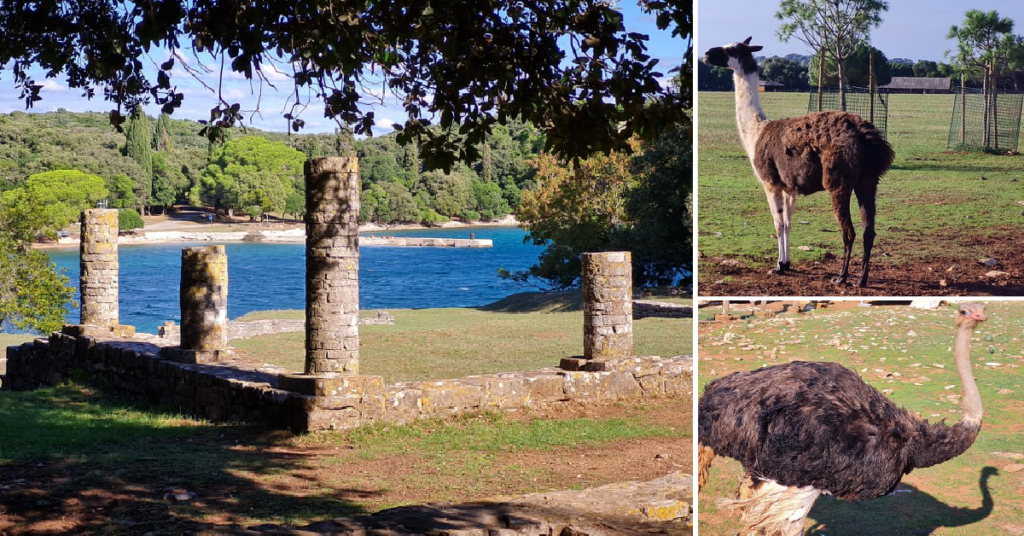
NP Brijuni, Photo: Tonko Bogovac
— It is nice when consensus exists from the beginning when there is support, but what to do when we do not understand each other and then everyone pulls to their side, everyone thinks they are right and is not willing to listen to others, so it gets to: “Who will be louder?; Who will get to speak first?”. In order to be able to solve something together, we must hear, listen to and understand each other. And it’s not about who will win, but maybe it’s a solution we haven’t even thought about in the beginning, but we have to come to it together.
— That is why these courses are really useful, since they give us those skills that we lack from our background and our education and give us confidence, so we can get out of our comfort zone because we are all different. It’s not that we all feel comfortable talking in front of a large audience, we’re not comfortable when someone raises their voice and says: “I don’t agree; I won’t offer support; We won’t protect it; I have my rights; This is mine!”. Then we don’t know how to react, whether to get into discussions or withdraw, but the basis of it all is listening.
— This course was really wonderful because we heard the experiences of other colleagues, and each of us faces our own challenges through work. The course was very well-thought-out with excellent and professional trainers, and they are people who work with stakeholders and managers on a daily basis, and it is a great value of this course and a big plus.
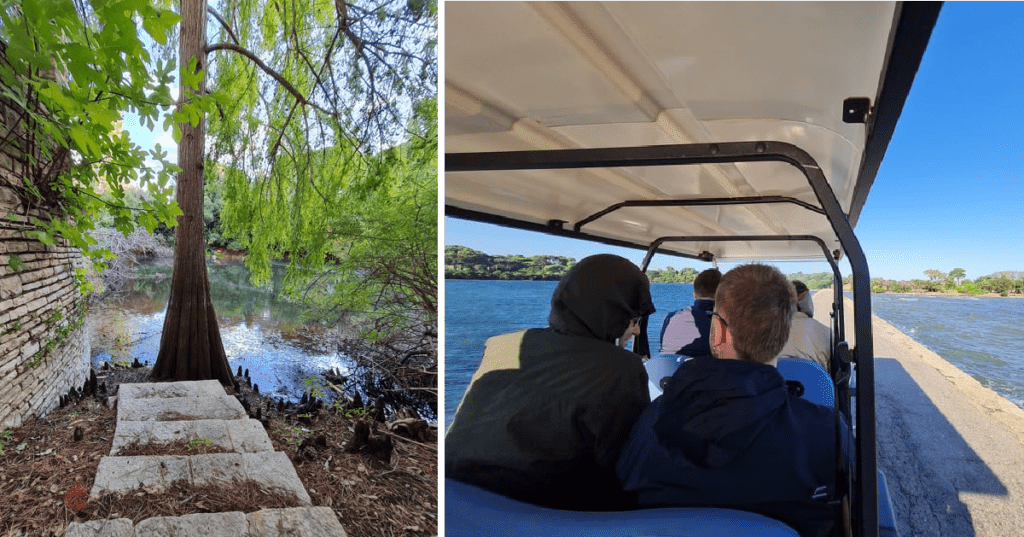
NP Brijuni, Photo: Tonko Bogovac
Top 5 tips for Nature Managers:
According to Martina, the following tips are important for everyone working with Nature:
- Whatever we do, we need to invest in communication and set aside time and be patient. Investments should be made in improving knowledge in various fields.
- Today’s nature protection requires a multidisciplinary approach, getting out of the comfort zone.
- Let us not hesitate to ask for help.
- An honest approach opens many doors to new insights.
- Let’s try to take the time to be in nature, so we don’t lose sight of why we embarked on this adventure. It is crucial that we sometimes relax, reset because it gives us the energy to be able to move on.
Capacity building for Nature Professionals
We are continuing our journey through the LIFE ENABLE project. It will create the European training system called the European Nature Academy—the academy will be home to a range of practical courses and tailor-made learning activities, designed to help Natura 2000 & Protected Area managers in their work. A combination of face-to-face, and online possibilities will help Natura 2000 and Protected Area managers be more effective, competent and confident nature management professionals.
This interview is also available as a podcast episode.
New revised version of the quality criteria and standards for German national parks
Allerheiligenwasserfälle © CharlyEbel (Nationalpark Schwarzwald)
Revision and updates to evaluation procedures are extremely important to review the management effectiveness of Protected Areas. Here is a best practice example of what has been done in Germany.
Version 2.0 of the publication “Quality Criteria and Standards for German National Parks” presents a revision of the quality criteria and standards for evaluation of national parks, to fulfil the UN Convention on Biology Diversity (CBD) and the CBD’s “Programme of Work on Protected Areas” (PoWPA), as well as to the subsequently formulated Aichi Biodiversity Targets and Sustainable Development Goals (SDGs).
Evaluation process for national parks in Germany
The main goals of the evaluation are:
- Identification of strengths and weaknesses in the National Parks and their reasons.
- Long-term management and, where necessary, improvement of the quality of park management by the national park administrations.
- Promotion of inter-state exchange between the National Park administrations.
- Contribution to fulfilling Germany’s duties and obligations from agreements within the framework of the CBD, including implementation of the “Programme of Work on Protected Areas”.
The process of revision
In Germany, the evaluation procedure adopted in 2008 went through a process of assessment of weaknesses over the years. This is why before the next evaluation between 2021 and 2024, a project was carried out to optimise, integrate and further develop the quality criteria and standards, to achieve a better evaluation method.
The parties involved in this work were the German federal and state governments, the National Park administrations, and the umbrella organization Nationale Naturlandschaften e. V. (formerly: EUROPARC German Section). Their collaboration contributes to the enhancement of the quality of the national parks, as well as to the preservation and development of biodiversity in Germany.
To show suitable and proven methods for this purpose might also be of interest to other countries and can enrich the international discussion of evaluation methods, which is why we want to share the new Quality Criteria and Standards with you.
– Sonja Miller, Head of Business Cooperation, EUROPARC Federation Networking Centre
The aims of the project of revision
- To improve the internal consistency of the quality set consisting of activity areas, criteria and standards by reducing redundancies.
- To summarise or reorder individual activity areas, criteria and standards.
- To sharpen the content and language of the standards.
- To consider possible synergies with integrative monitoring of large-scale Protected Areas.
The revised and updated quality criteria and standards
- Include new topics such as environmental management and sustainable procurement, accessibility and inclusion, and participation.
- Define eight instead of ten activity areas. These are differentiated by 42 criteria (instead of the previous 44).
- Include adaptation of the evaluation questions, to enable faster and clearer responses to the questions, minimising the time requirement.
- Include a new glossary with the definition of 37 key terms administrations, essential to the understanding of the questions and standards.
New revised version of the quality criteria and standards for German national parks
The publication is available for download online in German and in English.
Work as a Young Ranger @ Kullaberg Nature Reserve, Sweden!
Kullaberg Nature Reserve, in cooperation with the EUROPARC Federation, is happy to present this unique opportunity for young people to work as a Young Ranger in the Protected Area during the summer of 2022.
Do you want to work in a Protected Area?
Then keep on reading! Kullaberg Nature Reserve and EUROPARC are pleased to launch a call to select a group of Youth+ from across Europe to work as Young Rangers in the Nature Reserve over the summer.
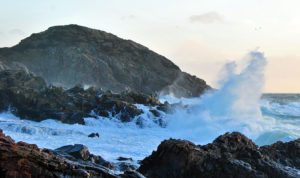
Åkersberget Kullaberg
Beautifully located along the south coast of Sweden, the Kullaberg Nature Reserve has been successfully running the Junior Ranger program for many years and is now among the pilot parks engaged in the development of the EUROPARC Youth+ program.
This year we want to give the opportunity to a selected group of Youth+ and former Junior Rangers from the EUROPARC network to stay and work in the nature reserve for three weeks over summer. There will be two groups of 4 people:
- The first group will work from 4th to the 24th of July
- The second group from the 25th of July to the 14th of August
Please make sure you are available on one of those periods before applying.
You will be formally employed and ensured by the Nature Reserve during your stay. A salary, equal to the local summer workers, will be paid. Salary rate will start at a minimum of 11€ per hour and may vary up to 15€ depending on former experience. The working time will be 40h per week with the possibility to work on weekends, up to a maximum of 80h in a two week period of time. There will be at least one or two rest days every work week.
Please be ready to provide ample bank records upon agreement of employment and before arrival. Note that Non-EU citizens must check legal requirements and provide necessary work permits.
What will you be doing?
Although Kullaberg is a great place for a vacation, this offer is not a summer holiday! Instead, you will get hands on experience working in a Protected Area in a different country.
Young Rangers will be working in groups to support the Park and local Rangers in their daily missions. The tasks will include working in the visitor centre, informing the public, practical field work with nature reserve management crew and working with the young local summer workers and Junior Rangers / Youth+ for a shared experience.
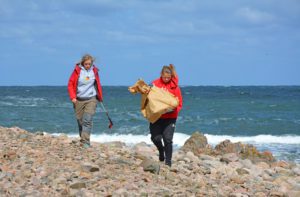
Young Rangers at work at Kullaberg Nature Reserve
As this is a working and learning experience, Young Rangers will also have the opportunity to visit the park, learn from each other and share their knowledge. There is the possibility to run workshops or organise thematic activities (like excursions, presentations of their home parks…) on specific areas of expertise and interest. Those activities might be held both for the public and/or for the summer workers.
During their stay, Young Rangers will also have the opportunity to meet and work with the Kullaberg Junior Rangers.
What are the requirements?
To be eligible you have to:
- Be between 18 and 26 years;
- Have good communication skills and fluency in English: those are essential requirements. Knowledge of other languages are welcome;
- Have the support of a Protected Area member of the EUROPARC Federation. A letter of support is required;
- Be passionate for nature, independent, enthusiastic, team-worker and have good leadership skills;
Additionally, we would highly value if you have:
- previous experience as a Junior Ranger, Youth+ or equivalent;
- undertaken relevant professional or volunteer work in Protected Areas;
- A EU Driving licence (manual shift);
What else do you need to know?
Accommodation and food during the stay will be financed by Länsstyrelsen (County Administrative Board) Skåne and a car will also be provided for the group. You will need to cover your own travel costs to and from the Kullaberg Nature Reserve.
The group will stay together at Kullabergsstugorna in a picturesque setting in the nature reserve and will need to cooperate and work as a team to shop for groceries, cook and care for themselves. Of course, there will be ample time to explore the area, go on porpoisesafari, snorkelling in the marine nature reserve, experience the beautiful south-west coast of Sweden and of course to sit around a campfire at Kullabergsstugorna and just enjoy the nature reserve.
How can I sign up?!
We hoped that’s what you’d ask after reading about this great offer!
- Deadline for applications: 25th of April.
- Application should be submitted using the online form here.
- Reference / letter of introduction and support from your home Park (e.g. from Park Director, Ranger or mentor from your home protected area) should be uploaded to the online form.
Candidatures will be assessed by an internal jury including representatives from the Kullaberg Nature Reserve and EUROPARC Federation. Shortlisted candidates will be interviewed online.
For any information please contact Elena Bazhenova: elena.bazhenova@lansstyrelsen.se

EUROPARC stands firm with all in Ukraine
The EUROPARC Federation was founded on the principle of international cooperation, not just to look after our shared European nature, but also to support those who live and work in and for our Protected Areas.
As such, we denounce and condemn the invasion of Ukraine by the Russian Federation and stand firm with all in Ukraine, thinking especially of our colleagues in the Parks system.
We strongly declare our commitment to peace, dialogue and shared values that enable us all to not only protect our nature and support our communities, but to act collectively to address climate change and biodiversity loss.
Acts of war destroy the fundamentals of society: therefore, it is imperative that EUROPARC as a Pan – European organisation raise our voice when national aggression threatens democratic values, our freedoms, human rights and the rule of law. These are the building blocks upon which we build our common future, where nature and Protected Areas are safe places and the life support system of our planet.
EUROPARC expresses our support to our parks colleagues in Ukraine who are striving to live in an open democratic society – we embrace and invite them into the EUROPARC family. We seek the solidarity and support of EUROPARC members to enable us to bring Ukrainian Parks into our network. We are actively working on a mechanism to achieve this.
We acknowledge too our members in Russia who especially, declare their common tenets working for nature and people, aligned to our shared values in EUROPARC.
The history of many of our Protected Areas in Europe is complex and often underpinned by delicate historical tensions. This is particularly evident given that most of our Protected Areas are located on the former Iron Curtain – now European Green Belt. But we must learn the lessons of history to build a new, peaceful and cooperative society for our nature and our peoples. EUROPARC did so almost 50 years ago when the Iron Curtain was then in place.
We reaffirm again now that the only way to build our nature and society is through international cooperation, mutual understanding, shared experience, knowledge and innovation. Not with tanks.
EUROPARC members have always led by example and we encourage EUROPARC members to show their support for Ukraine, through donations in humanitarian collections or even more practically by offering park accommodation to house those fleeing the conflict. Any park willing to make such an offer, please contact us and we can seek through our colleagues in Nationale Naturlandschaften e.V. (EUROPARC Germany) to coordinate such assistance.
EUROPARC Federation
President Michael Hošek
Chief Executive Carol Ritchie
EUROPARC Council, Staff and Sections
